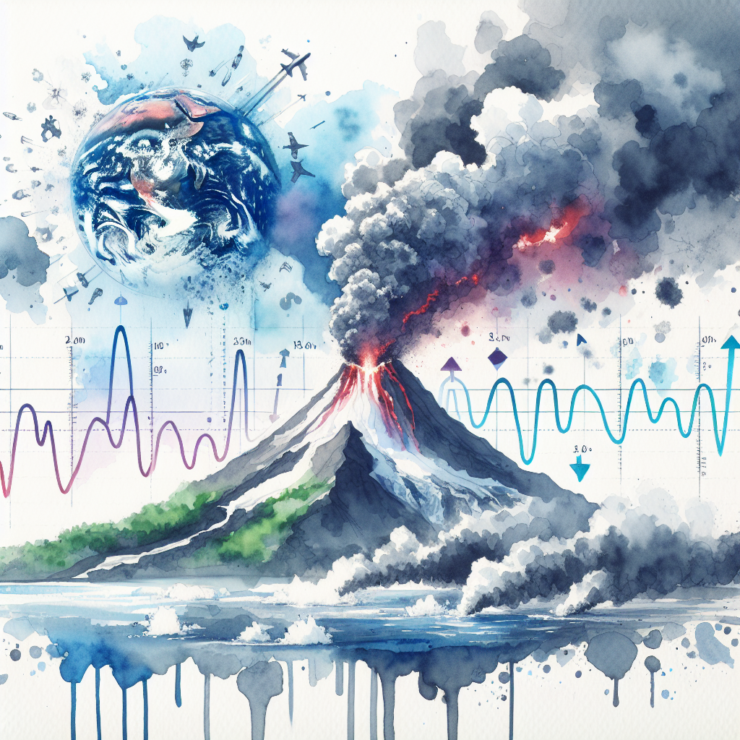Did you know that when a volcano erupts, it can affect the weather around the planet? It’s a fact that has sparked many conversations, debates, and, unfortunately, some myths about volcanic eruptions and their impact on global cooling. The notion that all volcanic eruptions lead to significant global cooling is a simplification of a much more complex relationship. But what is the real story?1
Volcanic eruptions can indeed influence the climate, leading to temporary cooling effects. This is because eruptions release large amounts of sulfur dioxide (SO2), water vapor, and ash into the stratosphere, which can form a kind of reflective layer around the Earth. This layer can block some of the Sun’s rays, leading to a cooling effect on the Earth’s surface. However, this impact is not as straightforward or as long-lasting as popular myths suggest2.
The key factor determining the climate impact of an eruption is the amount of sulfur dioxide it emits into the stratosphere. Not all volcanic eruptions are powerful enough to inject SO2 into the stratosphere3. Instead, many release most of their gases and ash into the lower atmosphere, where they have a much shorter-lived effect. Moreover, the global cooling effect is usually temporary, lasting from a few months to a few years, after which the climate tends to return to its pre-eruption state2.
Furthermore, it’s critical to understand that while some volcanic eruptions have led to noticeable cooling effects, such as the famed “year without a summer” in 1816 following the 1815 eruption of Mount Tambora, not all eruptions have a significant impact on global climate. The effect of an eruption on the climate greatly depends on the eruption’s magnitude, latitude, and the amount of sulfur dioxide that reaches the stratosphere4.
It is also essential to consider the role of human activities in influencing the climate. While volcanic eruptions can lead to short-term cooling, the long-term warming trend observed over the past century is primarily attributed to human activities, particularly the emission of greenhouse gases5 . In this context, the impact of volcanic eruptions on the climate is minor compared to the significant and enduring effects of anthropogenic climate change6.
Let this information inspire you to explore and understand the world around you, recognizing the complexity and interconnectedness of natural phenomena and human activities. Remember, the Earth’s climate is influenced by a myriad of factors, and understanding these relationships is key to tackling the challenges of climate change.
- https://www.dri.edu/volcanic-eruptions-triggered-historical-global-cooling/ [↩]
- https://scied.ucar.edu/learning-zone/how-climate-works/how-volcanoes-influence-climate [↩] [↩]
- https://www.usgs.gov/programs/VHP/volcanoes-can-affect-climate [↩]
- https://scied.ucar.edu/learning-zone/how-climate-works/how-volcanoes-influence-climate [↩]
- [↩]
- https://www.usgs.gov/programs/VHP/volcanoes-can-affect-climate [↩]







































Add comment